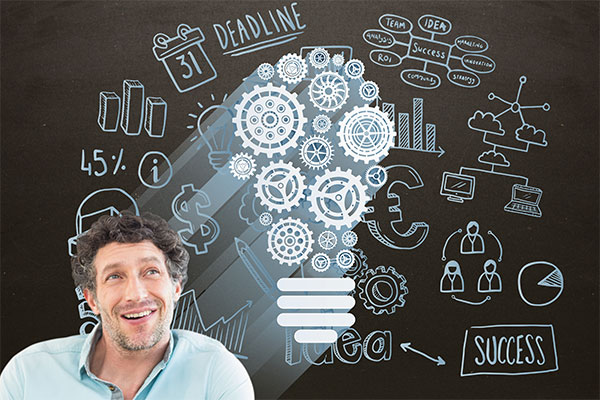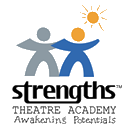Many people believe that the ability to think critically is the cornerstone of both intellectual growth and well-informed decision-making. These competencies cover a broad spectrum of cognitive aptitudes and attitudes that enable people to reason logically, evaluate data, and draw well-informed conclusions. The development of these abilities is critical in a time of rapidly changing challenges and an abundance of information. let’s examine the essential elements of critical thinking, their importance, and useful critical thinking skills for fostering personal growth.
To solve problems and make well-informed decisions, critical thinking is a cognitive skill that requires the capacity to analyze, assess, and synthesize ideas and information. It’s a methodical and deliberate process that extends beyond taking things at face value. Rather, it invites people to ponder, investigate, and ask hard questions about the matters in question. Fundamentally, critical thinking is about thinking actively rather than passively. It entails thinking critically, weighing opposing arguments, and evaluating the data with objectivity. In both everyday life and professional and academic contexts, critical thinking is an invaluable skill, and attending a personality development course fosters critical thinking, enabling you to approach life’s challenges with a more analytical and insightful perspective.
Why We Need Critical Thinking?

- Improved Decision-Making:
Applying critical thinking techniques enables us to make more logical and knowledgeable choices. It enables us to balance the benefits and drawbacks, take prospective outcomes into account, and select the best course of action.
Visit: tips for active communication
- Effective Problem Solving:
When faced with complex problems, critical thinkers break them down into manageable components, analyze each aspect, and come up with creative and efficient solutions.
- Enhanced Communication:
Proficient critical thinkers can articulate their ideas succinctly and convincingly. They are also capable of having fruitful conversations and arguments, which are crucial in both personal and professional spheres.
- Preventing Biased Thoughts:
Critical thinking helps us identify and reduce cognitive biases. It enables us to approach problems with an open mind and base our decisions on facts rather than feelings or assumptions. Personality development training helps here by creating awareness in case of biases in thoughts.
- Adaptability:
In a world that is changing quickly, adaptability is essential. Because critical thinkers can pick up new information quickly, evaluate its applicability, and modify their thoughts and behavior accordingly, they are more flexible.
The Components of Critical Thinking

Critical thinking involves several components, which collectively contribute to its effectiveness:
- Analysis:
To better comprehend complicated material or issues, this component entails disassembling them into simpler parts. It involves figuring out the important components and how they interact.
Visit: why critical thinking for kids
2. Evaluation:
Critical thinkers evaluate the advantages and disadvantages of arguments, concepts, or solutions after examining the available data. They weigh the evidence’s applicability and the reliability of the sources. The capacity to make logical judgments based on the information at hand is known as inference. It’s an essential component of critical thinking, particularly when working with missing or confusing information.
3. Explanation:
The ability to articulate one’s reasoning concisely aids in the comprehension of others’ mental processes by critical thinkers. The ability to communicate and persuade effectively requires this.
4. Problem-solving:
Using critical thinking to tackle practical issues is the focus of this section. Developing workable solutions entails applying analysis, assessment, and inference.
Visit: how to cultivate a growth mindset
5. Making choices:
Making decisions involves using critical thinking to determine the best course of action. It takes into account the goals as a whole, the available options, and their effects.
6. Creativity:
Critical thinking is not solely about analysis and evaluation; it also encourages creativity. Creative thinking helps in generating novel ideas and solutions to problems.
How to Build Critical Thinking?

Although some people may naturally be good at critical thinking, these abilities can be honed and enhanced with training and experience. The following are some methods for developing critical thinking abilities:
- Ask Questions:
Don’t accept information at face value. Ask questions to delve deeper and understand the underlying principles and assumptions.
2. Diverse Views:
Look for a range of viewpoints and beliefs. Having conversations with individuals who hold contrasting opinions can sharpen your intellect and broaden your perspective.
3. Information Evaluation:
Consider the information’s relevance, reliability, and source when you come across it. Watch out for prejudice and false information.
Visit: tips to express feelings
4. Practice Solving Problems:
Make it a habit to solve problems regularly. This can be accomplished through logical games, puzzles, or practical difficulties.
5. Read Vigorously:
Make an effort to interact with the text you are reading. Make notes, underline important ideas, and challenge the author’s claims.
6. Debate and Discussion:
Have discussions and debates with other people. You can think through other viewpoints and improve your arguments with the aid of these exchanges. learning these skills becomes essential for kids at a young age and hence the role of personality development for kids is crucial.
7. Constant Learning:
The ability to think critically is a lifetime skill. Whether you choose to learn through books, courses, or hands-on experience, maintain your curiosity and openness.
Visit: benefits of creativity and innovation
Critical thinking skills are essential in today’s intricate, information-driven society. They enable people to solve difficult problems, communicate clearly, and make wiser decisions. The advantages of developing these abilities are evident, even though they can be difficult to cultivate. People can develop into more proficient critical thinkers who can confidently navigate the challenges of the twenty-first century by actively engaging with information, seeking out different viewpoints, and practicing problem-solving.

